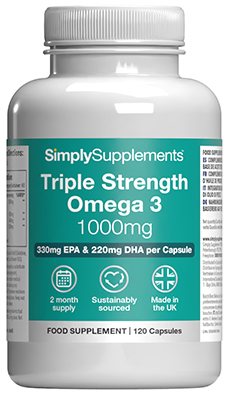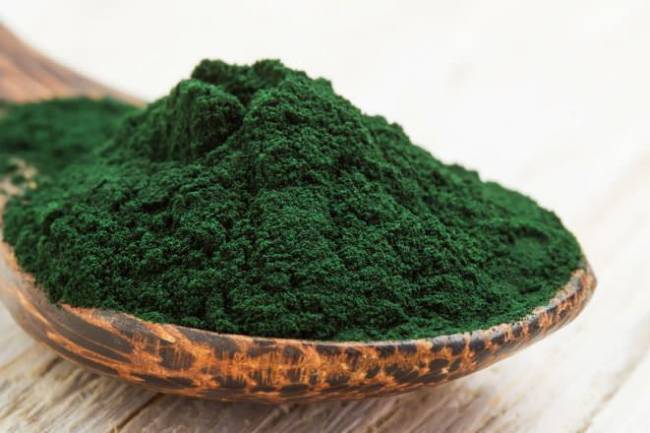Fish Oil vs Krill Oil - What is the Difference?
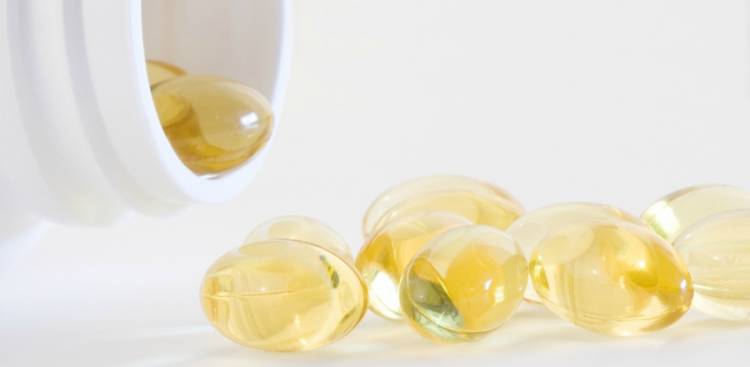
Fish oil and krill oil are two of the most popular health supplements available on the market, with benefits ranging from improved skin to a healthier heart.
With all the marketing and scientific jargon, however, it can be difficult to know which supplement is right to take and the differences between the two.
Not sure which is best for you? Don't worry, we're here to try and clear things up a little...
Why Take Fish Oil or Krill Oil?
Essential fatty acids (EFAs) are not produced by the human body and so must be obtained through our diet. There are two main types of EFAs; omega 3's and omega 6's, both of which are necessary for hormone production, healthy hair and skin, brain development and blood clotting, among other uses.
These essential polyunsaturated fatty acids (sometimes called “PUFAs”) have also been shown to help reduce chronic inflammation, and may therefore assist with a range of conditions in the body.
The impacts of essential fatty acids (such as EPA and DHA) on inflammation have been found to impact everything from cardiovascular health to vision.
Little wonder, then, that so many of us taking some kind of supplement to maintain fatty acid levels in the body.
Research also shows that omega 3 and omega 6 oils should be consumed in a ratio somewhere between 2:1 or 4:1. At the same time, most people are thought to actually consume somewhere between 10:1 and 30:1. This means that many of us are deficient in omega 3 oils, and this imbalance has been linked to conditions such as arthritis, asthma and depression.
Omega 3 supplements can therefore be beneficial in helping to boost our omega 3 levels and, as a result, improving our general health.
Fish Oil
As the name suggests, fish oil is extracted from a range of marine fish. Particularly high concentrations are found in fish such as mackerel, herring and tuna - the so-called “oily fish”.
The benefits of fatty acids coming from oily fish are well-known, and considerable resources have been invested into scientific research over the years. Fish oils are now well established in the medical world, with numerous authorities promoting the benefits of fish oils.
It is now recommended that everyone ensures they're getting enough omega 3 by consuming two portions of oily fish per week, or by supplementing with omega 3 fish oil supplements. Studies comparing the two have found little difference in the beneficial impacts between dietary fish oils or supplementation.
Little wonder then, that fish oils are one of the best-known supplements on the market today, offering a practical and cost-effective solution.
Krill Oil
Krill is the name given to certain types of tiny ocean-going crustaceans. You can think of them as a microscopic relation of shrimps or prawns.
Krill are one of the most numerous creatures on the face of the planet, and form an important part of the marine ecosystem. They are the start of the food chain for many well-known animals including even giants like whales.
While they may be found almost anywhere, the greatest concentrations tend to be the clean, clear waters of the polar oceans. As a result, most krill oil comes from the Antarctic krill (Euphausia superba). These deep sea krill are harvested by specialist fishing fleets, and the beneficial oils they contain are then extracted for the supplement industry.
Krill oil is typically a rich red colour, thanks to the presence of a powerful antioxidant called astaxanthin. Some authorities suggest that these antioxidants may confer other health-giving benefits besides those established for omega 3 oils.
Whilst fish oil is well established in health circles, krill oil is far newer and there is far less scientific research promoting it. What is not under any doubt is that krill oil contains the same beneficial fatty acids; the question is more why one might consider taking krill oil as opposed to the better-known fish oils?
Fish Oil Vs Krill Oil: What's Best?
Possibly the most intriguing difference in the fish oil vs krill oil argument comes from what nutritionists call “bio-availability”. In laymen's terms, this is the body's ability to actually harness the beneficial fatty acids found in krill and fish oils.
In one study, participants were either provided with 3 grams of krill oil or 1.8 grams of fish oil per day. Levels of polyunsaturated fatty acids and cholesterol were then monitored. The scientists found that both groups saw statistically significant increases in both the EPA and DHA fatty acids, and that cholesterol also improved. The scientists found no difference in the effect of these two comparable supplements.
Perhaps more surprisingly, the experts found that concentrations of beneficial PUFAs differed between the two supplements. The 3 g of krill oil provided was found to contain 543 mg of EPA and DHA.
In contrast, the 1.8 g of fish oil provided 864 mg of the same fatty acids.
So what is going on?
Firstly, it would seem from this analysis that krill oil, while rich in beneficial omega 3 oils, actually seems to contain less on a weight-for-weight basis. At the same time, the beneficial impacts were found to be identical - so somehow the body seems able to make better use of this smaller dose.
Of the limited studies conducted to date, it seems that there are two elements at play. Firstly, the two different oils are present in slightly different formats. Whilst the omega 3 oils in krill are present in a form known as phosphatidylcholine, fish oils tend to present themselves as triglycerides.
The second element that leads on from this is that there is some evidence to suggest krill oil may be more easily absorbed by the body, so may prove more beneficial.
One study which compared the bioavailability of krill oil versus fish oil found that the “EPA and DHA in krill oil had a higher 72-hour availability than in… fish oil”. Whilst research on krill oil is still very much in its infancy, it does seem that krill oil may offer the same proven benefits of fish oils, but in a more easily accessible form. As a result, it seems that it may be possible to derive the same benefit from a lower intake of krill oil when compared to fish oil.
Some also argue that krill oil is safer and cleaner because it is sourced in an environmentally sustainable manner from less contaminated waters.
The final difference between krill oil and fish oils is the subject of decomposition. Krill oil starts decomposing within only 2 to 4 hours of harvest, whereas fish oil remains fresh for 48 to 72 hours. As a result, manufacturers must either keep krill fresh or freeze them until they are ready to extract the oil. This means that krill oil supplements tend to have higher production costs compared to traditional fish oil.
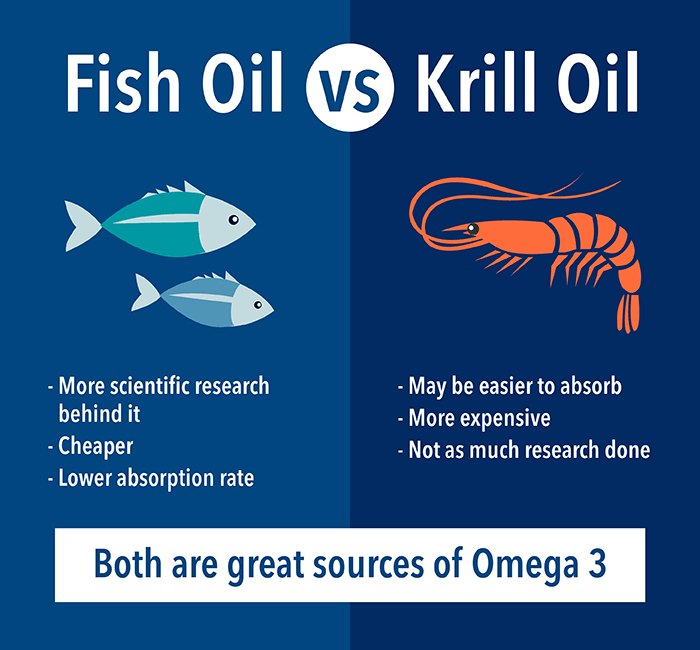
In Conclusion
Both krill oil and fish oil have their uses and are great sources of omega 3. Fish oil has a long history of scientific research behind it, showing the many benefits daily supplementations can bring.
Krill oil holds some promising research for the future, but at the moment lacks as much substantive data as to its benefits.
The complex manufacturing processes and issues surrounding decomposition also mean that krill oil supplements are more expensive than many traditional fish oil supplements, which can be an issue for some consumers.
There is a vast amount of research documenting the health benefits of dietary omega 3 oils.
If you're achieving this either through krill oil or fish oil, it's definitely a step in the right direction, regardless of which product you choose.
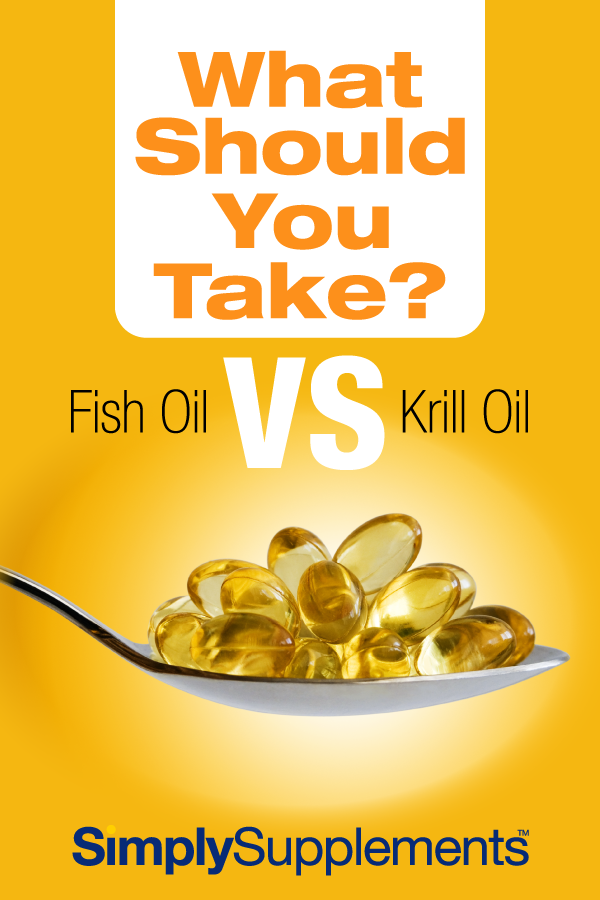
Sources:
https://www.ncbi.nlm.nih.gov/pmc/articles/PMC3789637/
https://lipidworld.biomedcentral.com/articles/10.1186/s12944-015-0015-4
https://lipidworld.biomedcentral.com/articles/10.1186/1476-511X-12-178
https://link.springer.com/article/10.1007/s11745-010-3490-4

 Nicole
Nicole 



